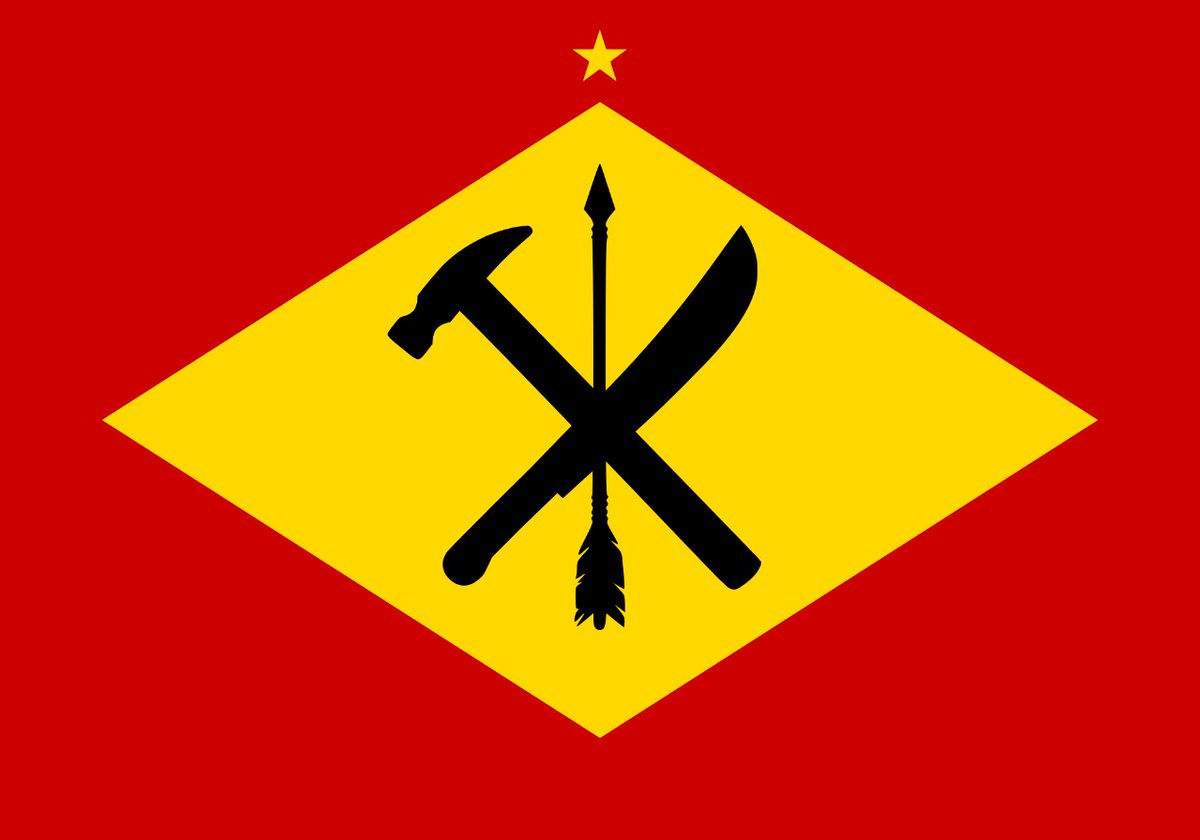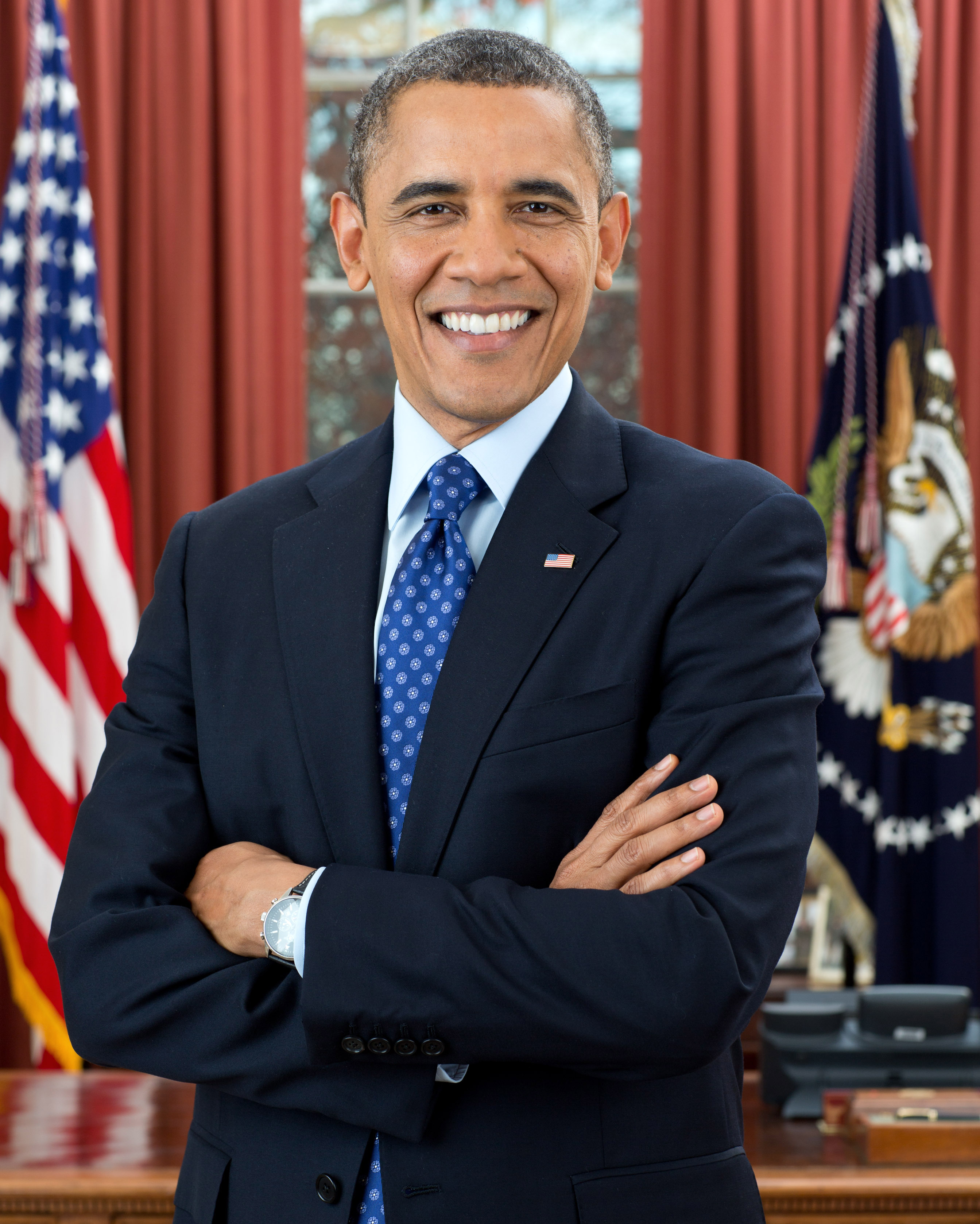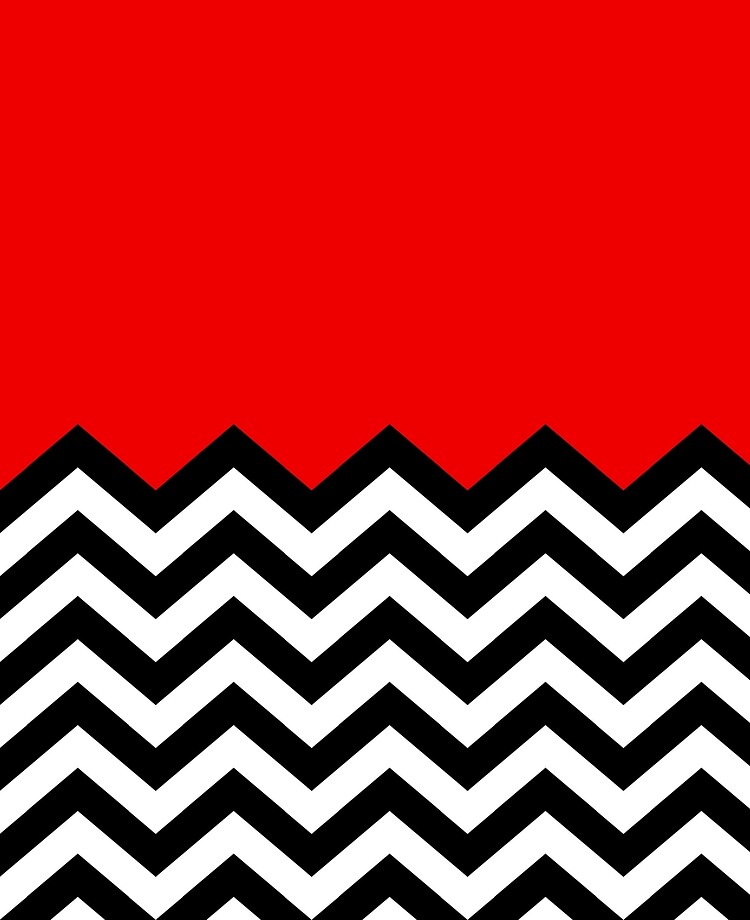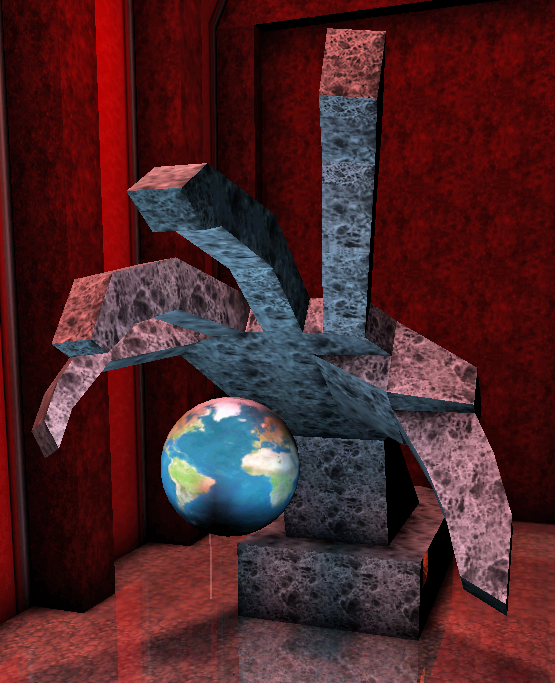I don't think we should be surprised when a succdem does succdem things. Maduro has been increasingly liberalizing the economy and making moves to allow in U.S. capital. I sympathize with his position, as expecting a hardline communist stance ala Cuba in the face of U.S. opposition is incredibly unlikely, given the lack of direct invasion history with the U.S.
However, if the PSUV continues down this line without attempting to ally itself with either Brazil or China, it will actually set itself up for a capitalist coup d'etat. You give the capitalists an inch and they will always take a mile, and Venezuela is no exception, party for socialism or not.
I will admit not knowing enough info to be sure but I'd really like to know more. I've seen some of the things Maduro has said, and it wasn't long ago that he was explicitly stating that they were building socialism, and he seemed very explicit that he meant marxist socialism not social democracy.
With that in my mind I have to wonder whether this is really socdem bullshit or whether this is his attempt at a "reform and opening up" approach to development of socialism? And the conflict that caused in China at the time was not dissimilar no? Hardliners and reformers.
Maduro says a lot of things, but he is no Chavez. He is ultimately pragmatic, and while he will do what he has to do to protect his political power, the legitimacy of his elections, and keeping the U.S. from directly interfering with government operations, sticking towards a particular ideological plan for economic development is probably not high on his list of agenda items.
We will see what actually happens. Ultimately, much like with China, it is not my country nor my party and therefore not within my capacity to truely judge the true nature of the socialist project taking place there. I hope whatever reforms they do take achieve the general prosperity they are looking for.
I'm actually perfectly ok with pragmatism, Deng was pragmatic, and while he made mistakes he also set China up for where it is today.
My point here is ultimately whether Maduro is securing socialist control of the state so that these reforms can't result in a liberal takeover. I am ok with allowing some investment in if proletarian control of the state is maintained. China has shown that as long as you maintain the DOTP you can do this, the structure and approach is what matters. The 4 cardinal principles combined with the hierarchical structure of China's electoral system protected China long enough for Xi to clear out the corruption that built up over time.
Venezuela implemented Socialism of the 21st century.
"Leaders who have advocated for this form of socialism include Hugo Chávez of Venezuela, Rafael Correa of Ecuador, Evo Morales of Bolivia, Luiz Inácio Lula da Silva of Brazil and Michelle Bachelet of Chile.[3] Because of the local unique historical conditions, socialism of the 21st century is often contrasted with previous applications of socialism in other countries, with a major difference being the effort towards a more effective economic planning process."
that label is pretty useless, all those leaders differ greatly in ideology
Tourists flock not to the beaches, but the slums to see '21st-century socialism' From a trickle a few years ago there are now thousands, travelling individually and on package tours, exploring a leftwing mecca which promises to build social justice in the form of "21st century socialism".
it's still pretty meaningless in practical terms
the project that got closest to aiming for a socialist transition was bolivia (i'm saying "was" because afaik they've been dealing some internal dissent within MAS since the coup, which has actually been hurting linera, their most important marxist and the most vocal one about the idea of transition)
chávez by the end of his life was actually becoming a revolutionary given the changes in discourse in the early 2010s, but he never managed to do anything more than a modest social democratic plan
lula is a soclib centrist, so was rafael correa; bachelet was to the right of them, she's basically chile's warren if i'm being very generous
corbyn shouldn't really be trusted in this, he has called even lula a socialist before, which is a joke at best as he's an austerity lib who likes food stamps and public universities (which is good, even great for me personally as because of him i'm finally getting a cool undergrad scholarship, but it's still just lib shit)
so yea the label doesn't really work when it's associated with these vastly different leaders
I don't think so. Contrary to popular opinion, Venezuela has never actually pursued major land reform or actually socialized most of their industries. Even at the height of socialism in Venezuela, 70% of capital was still in private hands. E.g. one of the major problems in Venezuela was that there is food, it's just being hoarded or thrown our for profit/spite for the federal government by the three major food conglomerates.
The problem is that Venezuela has actually legitimate and well-facilitated popular elections, probably one of the only countries in the region where that is true (something which is incredibly irritating to watch libs make fun of) and a very popular socialist front, but that socialist front is not fully committed to expropriation, but rather marshalling the resources that the government does have towards poverty alleviation and internal security.
However, notice that this is not capital development and it's not a Marxist, ML, Maoist, MLM, Stalinist, or even Trotskyist plan. This plan stems from the roots of Bolivarian nationalism, and maintaining that independence and nationalism is the key component of the movement. The major key is simply to not become running dogs of the U.S. regardless of economic ideology. Poverty alleviation is key because that is the key to the votes to stay in control of thst project, but ultimately socialism is more of a means to an end for the project, and they are more than willing to experiment with different forms of capital accumulation.
My personal belief is that they are distancing themselves from communism as a brand and ideology because they have rooted out the U.S. backed dissent, so they are more comfortable in their power position, particularly within the military. That means they can start to experiment more broadly with opening up the economy without worrying about a coup coming from the U.S. backed business class, as they already wasted their juice on Guaido.
That being said, it's disappointing, to say the least, but ultimately I hope it leads to some sort of economic success and shared prosperity for the country. It has gone through several hardships in the last decade and could use a serious win.
Np, There are also corruption issues as well, but much like with Brazil, it is difficult to tell how much is just 'politics as usual' and how much is actually 'really bad political harm causing' corruption.
However, keep in mind that much of what is considered 'corruption' in Venezuela is called 'lobbying' in the U.S. so again, difficult to tell, and the fact that it is even prosecuted at all, let alone on the books as a crime should generally be seen as a good thing.
It's a big ol' complex nation, and I highly recommend reading telesur, even if they do sometimes overemphasize the socialist nature of the project imo.
there is food, it’s just being hoarded or thrown our for profit/spite for the federal government by the three major food conglomerates.
they have imported most of their food since the 50s, buying it with oil money
it's actually the better choice from an economic pov given venezuela's soil issues, but it obviously fucks up your sovereignty (which is why capitalist food production is trash and they should've done that land reform)
It can sort of be argued that Venezuela was basically blanquist in orientation, they just had oil and therefore are eeeeeevul commies due to that.
Yeah :maduro-gift: is a socdem actively supressing the communist party
For lack of a PCV emote:
:PCC: :maduro-katana-1::maduro-katana-2:
I don't know much about BadEmpanda, but I'm curious what his angle is here? Reading these articles it's obvious there's why conflict here and while it certainly seems fair to criticize Maduro these tweets are just playing up the AES==authoritarian angle for no obviously apparent reason.
I'm seeing way too much of this succ dem streamer on Hexbear. Yeah the guy hates the guys we hate but he's really the sort of guy we should hate. Just an awful clout shark with no social skills.
I'm skeptical of any European living in Latin America. 90% of the time they're some sort of sex criminal.
Or East Asia.
Or Southeast Asia.
Or Eastern Europe.
Or anywhere in Africa, honestly.
What, really? :hahaha:
Is that like when Trump had two scoops of ice cream and they all freaked out?
I got into it with him once on the chapo sub in 2019 over whether the MAS and surrounding movement in Bolivia was ready to fight a PPW.
He's an asshole, but he's a principled leftist asshole.
I thought the Bolivian people were prepared to shrug off the coup government if it came to it. He thought that was an overoptimistic assessment.
He's a guy who says things before he knows them.
Can't say for sure if this is one of those times, because I am a guy who says things after he knows them.
The Maduro regime’s relationship with one of its traditional allies – the Communist Party of Venezuela (PCV) – has sunk to a new low. Their differences, which until recently seemed tolerable, have grown more acrimonious recently. Communist leaders increasingly support opposition labor unions demanding better wages and have loudly denounced the rampant corruption at top levels of the government, calling for an investigation that includes President Nicolás Maduro himself. The PCV party has also called for an “independent” investigation into the death of Leoner Azuaje, former president of the state-owned cardboard factory, Cartones de Venezuela. Azuaje was jailed during Maduro’s recent anti-corruption purge and allegedly committed suicide in his cell a few days after being locked up. The frequent clashes in the National Assembly between PCV representatives and the legislative leadership headed by Jorge Rodriguez have grown more heated recently. The PCV is against the president’s liberalization of the economy and has demanded a thorough investigation into top-level government corruption.
Meanwhile, the United Socialist Party of Venezuela (PSUV), Venezuela’s ruling party since 2010, has accused the PCV of colluding with the opposition and the United States to subvert Hugo Chávez’s Bolivarian revolution. The PCV countered by claiming that its two representatives in the National Assembly have been denied the right to respond to these accusations on the Assembly floor.
A recent statement from the PCV politburo blames the increasingly tense relationship on “… the systematic breach of the PSUV-PCV Unity Agreement signed in April 2018, and the implementation of an aggressive, ultra-liberal program against the people.” The statement was referring to the government’s economic liberalization measures in response to the nation’s financial collapse. PCV Secretary General Oscar Figuera says they have evidence of a plan by the Maduro administration to abolish the PCV through legal maneuvers used against other allies-turned-critics of the chavismo movement, such as the Patria Para Todos and Podemos parties. The PCV has accused Diosdado Cabello of spearheading the effort. Cabello is the first vice-president of the PSUV and the second most powerful figure in the party.
The PCV has been part of the Bolivarian revolution since Hugo Chávez was elected president in 1999. It banded together with Patria Para Todos, the Tupamaro Movement, and other minority leftist organizations to create an alliance with the PSUV called the Polo Patriótico, a political voting bloc established by Chávez to defeat the opposition. In late 2022, the PCV denounced the Maduro government in Havana during the 22nd International Meeting of Communist and Workers’ Parties hosted by the Communist Party of Cuba. When he was given the floor, PCV politburo leader Héctor Rodríguez told a surprised audience, “Venezuela’s recent experience reveals the limits of progressivism. It has abandoned anti-imperialist policies of nationalizing strategic industries, confronting large landowners, and defending social and labor rights in favor of a neoliberal economic agenda of privatization, price liberalization, landowner capitulation, labor deregulation and the dismantling of social achievements.”
Even so, there are prominent critics of some aspects of the revolutionary government’s economic strategy.
I recall discussions with the late president of the Communist Party of Venezuela (PCV), Jerónimo Carrera, in Caracas and London some 16 and 17 years ago. A legendary figure on the country’s left, he had spent almost 70 years—including two periods in prison—as an activist in the revolutionary movement, most recently as a friend, ally, and confidant of Chávez.
But he argued that loans and more of the oil funds should be invested in heavy and intermediate industry to expand the relative size of the industrial working class. Land reform should be accelerated and agriculture rapidly mechanized to reduce Venezuela’s excessive dependency on imported food.
Jerónimo also resisted overtures and demands from the Chávez government that the PCV dissolve itself into what became the United Socialist Party of Venezuela (PSUV).
But I was told that third world sucdems are not like other sucdems.
They're like other succdems, it just has a modestly different impact because it can undermine imperialism rather than support it.
And that's where it stops being different.
Is this your first run through with shitty opposition leftists in latam lmao. I already did this with Yaku Perez etc










